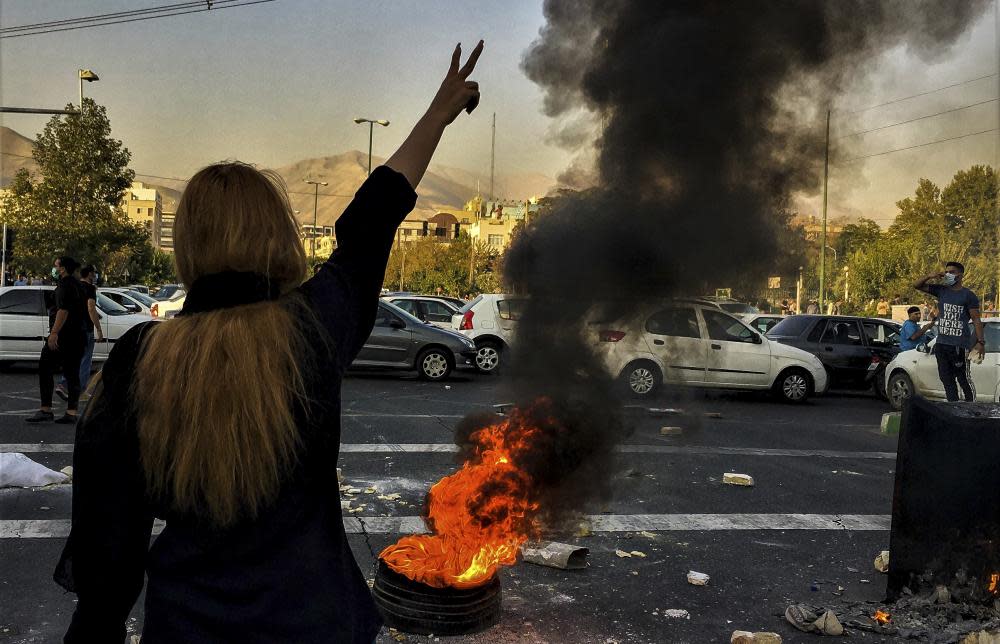Iran protests: democracies have ‘moral obligation’ to help, Canada foreign minister says

- Oops!Something went wrong.Please try again later.
Canada’s foreign minister has said democracies have a “moral obligation” to help the “incredibly brave” women taking to the streets of Iran in protest, as she met other female foreign ministers to condemn the ongoing violence that has rocked the country for weeks.
“As women foreign ministers we have a responsibility to help amplify the voices of women in Iran,” Mélanie Joly told a gathering of 14 of her female counterparts, according to a readout of the event provided to the Guardian. “As women leaders from around the world, we can make a powerful statement of support for women’s rights in Iran, and by extension, women’s rights everywhere.”
“Young women, in particular, are challenging Iran’s repression and structural gender inequality. They’re doing so at great risk. The women of Iran are speaking clearly,” said Joly. “No longer will they tolerate the regime’s vision of the role of women in society or how women should dress and behave.”
Related: Schoolboy protester dies in Iran after reportedly being shot at close range
Canada hosted the meeting to show its solidarity with Iranian women fighting inside the country to rid it of the compulsory hijab and demanding a change to the Iranian regime. Protests were ignited by the death of Mahsa Amini, a young woman who was detained by morality police for “improper” use of the hijab.
Canada, which has a large Iranian diaspora, has sanctioned former foreign minister Javad Zarif and every major Iranian government body, as well as Saeed Mortazavi, the prosecutor who ordered the torture of Zahra Kazemi an Iranian Canadian journalist who died in custody in 2003.
In her remarks, Joly said her government would continue to impose new sanctions against individuals and entities that have participated in, or enabled, human rights abuses.
“We will not stand idly by,” she said.
The meeting also heard from Shirnin Ebadi, a lawyer and Nobel laureate, Homa Hoodfar, a Conscordia professor emerita once imprisoned in Iran’s Evin prison, and Asa Regner, the UN assistant secretary general.
Ebadi said this week: “For 43 years, people have bottled up all this anger. For 43 years, the regime has turned a deaf ear to the demands of the people, and anyone who said anything against the regime has either ended up in prison or killed or has fled the country.”
Amini, who hailed from Iran’s Kurdistan region, died on 16 September after being detained three days earlier by morality police in Tehran for her “inappropriate attire”.
Represented at the virtual meeting were the German foreign minister, Annalena Baerbock, as well as 14 foreign ministers from as far apart as Iceland, Libya, Chile and Norway. Catherine Colonna, the French foreign minister, is on a visit to the US and was due to send an official.
One of the calls is for Iran to be thrown off the UN women’s committee.
Joly and Baerbock have been two of the foreign ministers trying to craft a feminists foreign policy. The movement suffered a blow this week when the new Swedish coalition government said it was dropping support for the policy that had been closely associated with the now-deposed Ann Linde, the social democrat foreign minister.
Joly was speaking on the day that both the EU and the UK slapped further sanctions on a group of Iranian military said to be instrumental in providing drones for use by Russia in Ukraine.

